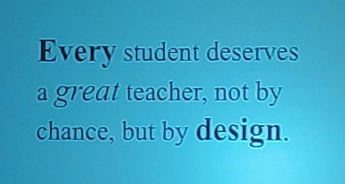As mentioned in my previous articles, I have set off on an inquiry regarding the academic status of African American students in Arizona. Although I am still in the gathering process, it is time to give an update on what I have learned.
National Assessment of Educational Progress (NAEP)
The NAEP provides an update on the math progress of our nation’s children. I specifically looked at the academic progression of African American students in Arizona in 2017 (the most current year available). It is not surprising that there continues to be a significant discrepancy between the overall achievement of African American students and whites with African Americans having a negative discrepancy of 31 points at 4th grade and 24 points at 8th grade.
Just as disturbingly, African American students have not received an overall score of “Proficient” since the report began in 1992. Eleven years later in 2003, our 4th graders scored “Basic” for the first time with a score of 215 and began to make gains reaching an all-time high of 231 (Basic) in 2015. Unfortunately, we lost those gains in 2017 with a 15 point drop to 216. We were right back where we started from.
African American 8th graders have a similar tale. We reached “Basic” for the first time as a collective whole in 2005 with a score of 261. Since then, we have made slow progress and in 2017 they continued to score as “Basic” with an all-time high of 272 points. That is an 11 point increase in 12 years. Less than 1 point per year!
MapLIT provides a plethora of information regarding the reading and math progress of all students up to 4th grade in Arizona. I used the information provided on African Americans living in Maricopa County. We make up 6.6% of the student population. Based on the Maricopa County summary report, 55% of African American students scored Minimally Proficient (MP) on the 2018 3rd grade AZMerit ELA, compared to the state average of 43% (MP) and 26% (MP) for white students.
3rd grade AZMerit Math scores from 2018 continued to show gaps. 33% of African American students scored Minimally Proficient compared to 23% (MP) for the state and a low 12% (MP) for white students.
This is not acceptable. Period.
Focus on what we CAN do something about…and DO IT.
There is one element that research has shown to be a significant multiplier in the academic success of any student. This is also the one factor that schools can directly influence: an effective instructor. Every student deserves a quality instructor and many of our teachers meet that description. Yet, when our African American students are not making significant gains, it is obvious that the instruction they are receiving is not effective. National Board Certification for Teachers (NBCT) is a way to ensure that all students receive effective instruction. This is especially true for African American students.
A few months ago, I met Adrienne Henderson-Cole. Adrienne is a NBCT who served as the National Board Instructional Coordinator in Maryland and the National Board Project Director for Arizona K12 Center. She recently earned her Educational Specialist degree from GCU’s College of Doctoral Studies. In addition to this, she is a Master Teacher and Mentor at the ASU Preparatory Academy in Phoenix, AZ. Adrienne is in the process of developing a NBCT Cohort for African American teachers. I had an opportunity to discuss this topic with her and asked her to speak more to why she felt the need for this type of support group. Here is what she had to say:
Question: Why is NBCT especially important for African American students and teachers?
Adrienne’s response: “National Board Certification is an important work for all teachers that truly want to improve their practice…and their impact on students. As African American teachers we serve as role models for the minority children that we encounter each day whether they are our students are not. They look to us to lead them to a successful future.
Additionally, it is important for students because data shows that minority children are performing lower than their peers. Research shows that NBCTs provide students with an enriching thorough instruction that helps them to make up for deficiencies in their previous educational experiences.
We need the skills of NBCT’s to close the achievement gap…This lack of equity in education throughout history has also impacted the amount of quality African American teachers in our classrooms. I hope to start a cohort of African American teacher and support them through to certification. I truly believe that African American adults, such as myself, need extra support and a sense of community and family in order to increase the number of minority NBCTs that can only come from candidate support providers who have had similar life experiences.”
How to learn more about this opportunity?
Option 1: To learn more about the National Board Certification process and the cohort that will be starting this fall in collaboration with the Arizona Alliance of Black School Educators (AzABSE) be sure to attend the 2019 AzABSE Teacher Leadership Summit on June 19th and 20th in Phoenix, AZ. Keynote Speakers will include:
- AZ Superintendent Kathy Hoffman
- Anthony J. Perkins (NAU)
- Keylah Boyer, Ph.D.
- Clottee A. Hammons (Emancipation Art)
- Jaqui Clay (Superintendent, Cochise County)
- Colin Seale, Esq. (thinkLaw)
Option 2: Adrienne can be contacted via email at adriennehc1@gmail.com to answer additional questions about the cohort and NBCT.
In addition to this, Superintendent Hoffman has initiated an African American Advisory Council. Although this collaboration just recently started, the group is already meeting, identifying, and discussing ways to better serve our African American students, teachers, and families. It takes many hands to make a heavy burden light. So find a place to put your hand in.










Comments 6
Yolanda, I love, love, love this strategy of utilizing research-proven techniques like NBCTs to increase the academic achievement of children of color. The effort to recruit more teachers of color to become NBCTs is excellent! This is great work.
Thank you Beth! I appreciate your words of encouragement.
Yolanda, this is such an important issue for students in Arizona. I love the suggestion of certifying a cohort of African American teachers. This brings up the critical issue of how we conceptualize the achievement gap between white students and African American students. Ladson-Billings (2006) recommends reframing the achievement gap in terms of educational debt, which takes into consideration the impact of racism on all facets of student’s experiences. How else do you think we can best support teachers, especially teachers of color, to work within the existing testing system and also to help their students grow beyond what is captured by these tests?
Hi Brittany!
Thank you for the research reference. I will follow up with that. You asked the right questionsn and I am learning that many others are asking them, too. I have been blessed with meeting people that are taking action. If you want to hear more about it and/or feel you have something to contribute, email me at yolanda.wheelington@gmail.com and I will get in touch with you. Thank you!
The achievement gap, especially the gap between the black and white, is a critical educational issue. There are many reasons that cause the gap, I believe. This blog figures out the teachers’ role in reducing the gap. This is quiet inspiring and actually it deserves the reflection from the educators and policy makers. According to Jeynes (2015), “Among those factors that were related to a reduction in the achievement gap were Family Factors, Curriculum, Religious Faith, and Religiously Oriented Schools”. It could be noted that the curriculum is one factor that could be helpful in reducing the achievement gap. I think it just coins into the argument of this blog, that is, the re-thinking of the instructions that have given to the Africa-America. I’m so curious about the approach that was stated within this blog-developing a NBCT Cohort for African American teachers.
Hello!
Thank you for your response and your reference. I will follow up on this one along with another that was given. I agree that there are many systems that contribute to the reduction of the gap and education is just one of them. As an educator, it is easy to get overwhelmed and this can be paralyzing. But, I can do something about the instruction that I provide the student in front of me. This is something I can directly effect. If you want to learn about the NBCT Cohort for African American teachers, I encourage you to attend the conference, or get in touch with Adrienne, or email me at yolandachanel@gmail.com and I will follow up.
Thanks,
YW